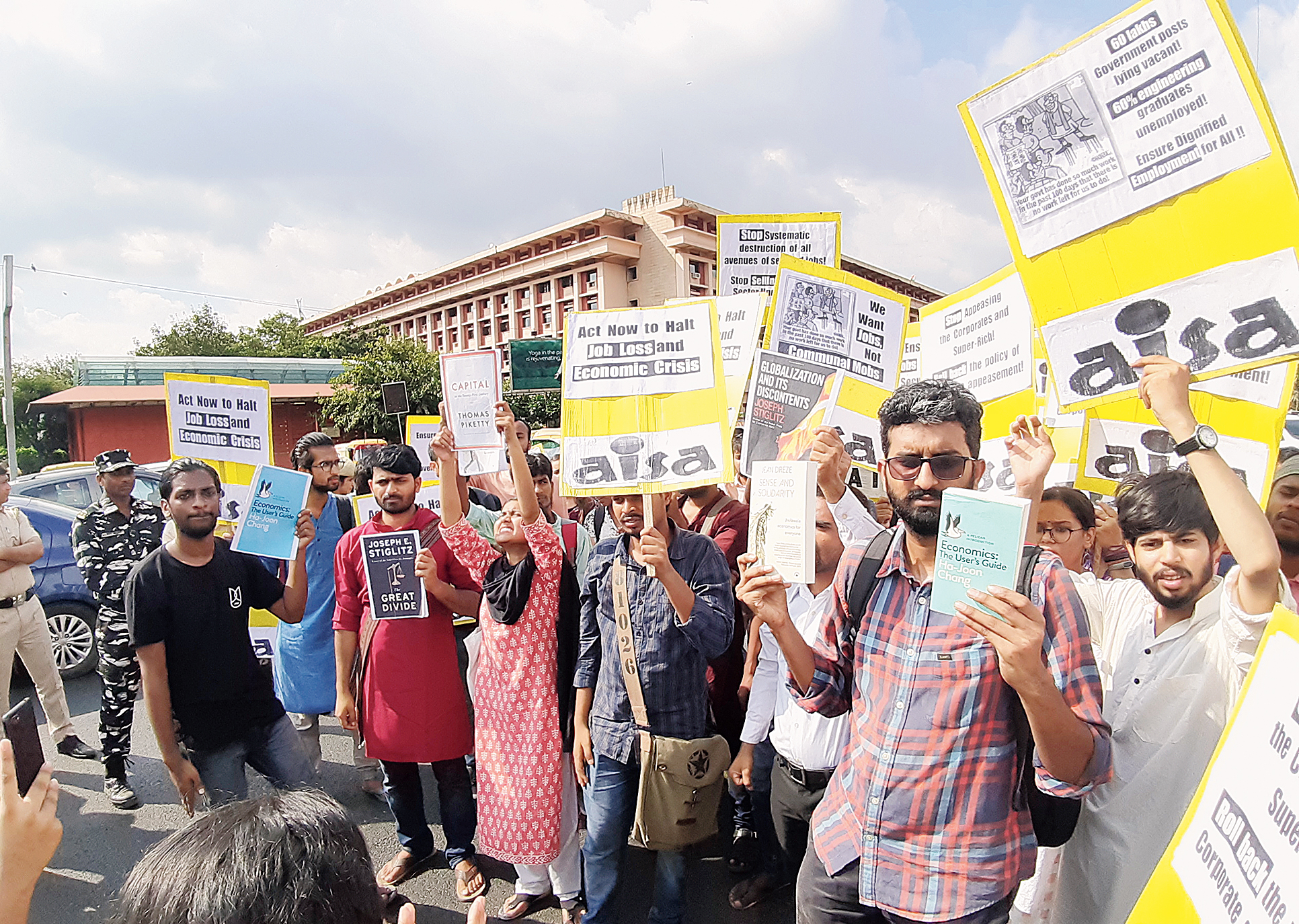A group of students marched down Rafi Marg on Friday carrying “essential reading” for finance minister Nirmala Sitharaman if she wanted to fix the economic crisis.
The members of the CPIML Liberation’s All India Students’ Association (Aisa) were armed with books and book excerpts on neo-Keynesian and development economics rather than Marxian texts.
Their main demand was that the government follow Keynes’s prescription to increase expenditure in the social sector to boost demand.
“Although we disagree with Keynes, we have tried to present all remedies from all streams of thought to the minister,” Aisa’s Delhi president, Kawalpreet Kaur, told The Telegraph.
“We are also submitting the NCERT’s school economics textbooks as the minister is not doing what she is supposed to do — increase people’s purchasing power and secure incomes.”
Police allowed the students to march for about 100 metres, between Rail Bhavan and Krishi Bhavan, where the books were handed over to officers to be forwarded to North Block.
The books included Ha-Joon Chang’s Economics: The User’s Guide and Jean Dreze’s Sense and Solidarity. The excerpts the students carried were from Joseph E. Stiglitz’s Globalisation and Its Discontents and The Great Divide, Paul Krugman’s The Return of Depression Economics and the Crisis of 2008, Thomas Piketty’s Capital in the 21st Century and Amartya Sen’s Development as Freedom.
“We are giving her the full text of Ha-Joon Chang’s book because it’s a book on basic economics for the general public. She needs it not just for this economic crisis but because she has been promoted to finance minister,” former JNU students’ union president N. Sai Balaji said.
“This government is not new and in their second term they are expected to know how to run the economy. But their performance from 2014 shows that they must learn the basics first.”
Sitharaman, a former JNU student, did an MA in economics followed by an MPhil from the university’s Centre for International Trade and Development. She left without defending her PhD thesis, which was on the Indo-European textile trade within the GATT framework. She moved to London, where she worked with PricewaterhouseCoopers, among others.
“They made someone from JNU the finance minister so she could save the economy that Modi has sunk. Nam unka JNU se hai par kam RSS ka hai (She carries the JNU label but works for the RSS),” Balaji said.
“She thinks that people can’t buy Parle-G (biscuits) for Rs 5 because corporate houses are being taxed. If you want people to be able to buy, then increase the expenditure instead of trying to sell Air India, ONGC and other PSUs. But you are only interested in giving profits to those who funded you for the elections.”
Although the students did not get an audience with finance ministry honchos, their speeches against privatisation and demand for a universal minimum wage of Rs 26,000 found avid listeners among the CRPF constables and employees of nearby government offices.











